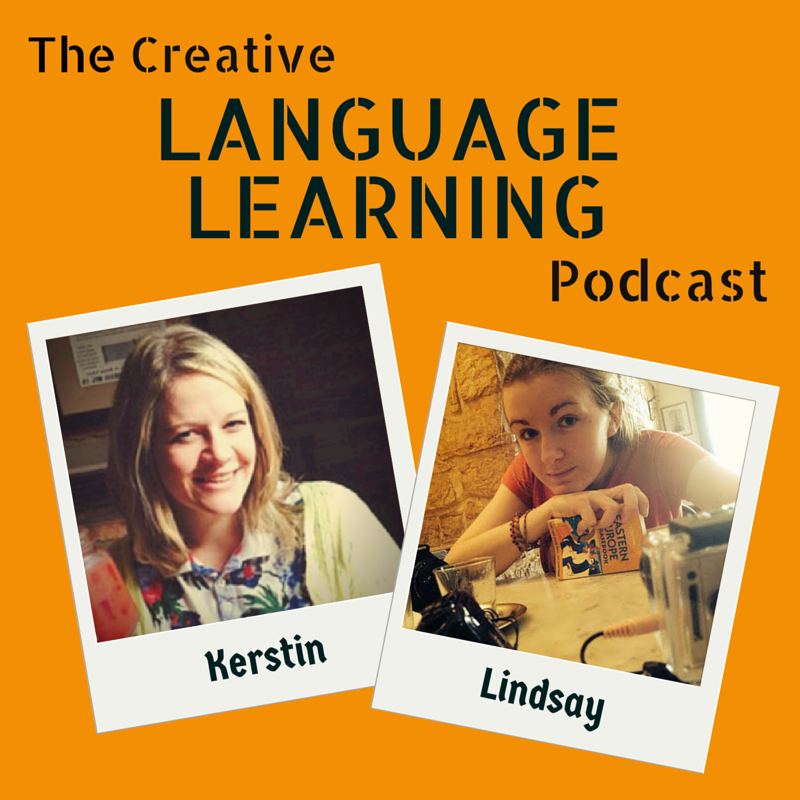Have you ever heard of a phenomenon called "Priming"? Priming is what psychologists call it when your brain adapts to the environment around it without you realising. For example, you might automatically walk slower in a nursing home than you do in a gym. The brain helps your body to adjust, and this also affects your memory and even your confidence and the whole way you interpret situations.
How Priming Helps You Turn on Your Brain
Priming is largely unconscious, but now that you’re aware of it you can also use it to your advantage when learning languages. The idea is to switch your brain into “language mode” and use cues from your environment to help you get into the right zone.
Want to learn more about how to be a productive language learner?
©morethanmaths on Flickr
How Subtle Prompts Help You Stay in The “Language Learning Zone”
When I was a German tutor, I’d teach many people in their lunch hour. They would stay in the office at their English-speaking workplace, close the door and open up Skype to start chatting German with me.
In those situations, I’d commonly noticed that it took them a lot of time to warm up, relax, and start chatting away. Having thought about the learning environment and what it means for your performance, I came to the conclusion that these students need to make a brain switch from work mode to learning mode.
In this article on Wired, the author describes how a mere glance at the native speaker will prompt them to blurt out native words.
The different role you need to play as a language learner.
And there’s more at play than just the language you’re speaking.
Many people who work in management or office-based roles are in an environment that looks a bit like school, but demands a completely different behaviour. “Professionals” don't just go out and try things. They are expected to control their creativity and maintain a professional image at all times.
When you think about the good mindset for language learners, it's a contrast: You'll do well if you can combine curiosity, discipline and a complete disregard for embarrassment!
How to Start Switching Your Brain Into a Different Mode
Switching up a part of your environment can help you become a better learner, with simple prompts that take seconds to implement.
Try out some ideas that learners and teachers can use to make priming work in the right way:
1. Listen to Target Language Songs and Watch Movies
I will not promise you that watching an awful lot of films in a foreign language will magically beam fluency into your mind.
The real benefit of surrounding yourself with the target language is that you stay engaged with it and develop knowledge of the country. In terms of the priming benefit, it will work magic. Plus, you get to do it while putting your feet up or driving.
2. Find a Suitable Slot in Your Schedule
Schedule your learning sessions for the right times. For example, I like doing my chatting in Spanish on the drive back from Zumba - partly because the Spanish lady is captive in my car, partly because we've just spent an hour having fun and dancing around. Others also swear by having a nice glass of wine to relax or using breathing exercises.
Another great tip is to create a learning corner in your home - somewhere quiet, free from distractions and full of positive associations.
3. Visualise Your Life as a Successful Language Learner
School classroom teachers have known for a long time that putting up posters and displays around the classroom can get pupils in the right state of mind for learning. They don't have to be written in the foreign language, but just reminders of what's great about the country you're learning about.
Take a tip from this and create your own language learning displays full of things that interest you about your language. They could be recipes, tickets from old trips, tourist brochures or printouts from the internet. I particularly love vintage posters.
You can find more inspiration on my Pinterest boards for German, French and Russian.
4. Warm Up in Your Target Language
In my teaching role, I try to start my lessons off easily with some smaller warm-up activities like asking students how they are or offering them a drink.
Recently, I received the great tip that using the same warm-up activity every time for regular students is actually helpful - here I was worrying people would get bored, but the learner's perspective was that knowing "what's coming" allowed them to prepare and feel confident at the start of the lesson. That puts every learner in the right state of mind for success.
A Festive Take on Using Your Environment as a Study Aid
Click here for my article on learning a language at Christmas (even if you don’t celebrate it)
First published July 2013. Last updated December 2021.






